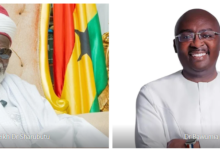Over 17,660 electric vehicles imported between 2017-2021

About 17,660 plug-in electric vehicles were imported into the country between January 2017 and December 2021.
Additionally 9,431 plug-in units of two and three-wheeled equipment (motor bikes and tricycles) were also imported during the period.
This was disclosed by the Deputy Minister of Energy, Herbert Krapa, in a speech read on his behalf at a stakeholder consultation on the Draft National Electric Vehicle Policy on Friday in Accra.
The forum which is the 16th in a series organised by the Ministry of Transport sought to pool the knowledge, expertise, and ideas of the participants towards shaping a comprehensive and forward-looking policy that would guide the uptake of electric vehicles in the country.
The Draft Policy also seeks to promote the demand of the electric vehicles, support the development of the supply chain, make Ghana the hub for the supply of lithium batteries, and ensure reliable and adequate electricity for charging the vehicles, develop the human capital as well as support research to provide relevant data to form decision making on the use of the vehicles.
According to him the global push for electric vehicles and e-mobility is not the occurring in vacuum as transportation remained a significant contributor to carbon dioxide emissions.
Ghana, he stated must emulate other countries to promote the productive use of electricity beyond commercial and residential uses in order not to become the dumping ground for internal combustion engine vehicles, which were becoming outmoded in the European Union and other countries.
The Minister of Transport, Mr Kwaku Ofori Asiamah, said the exercise which began three months ago was being undertaken in close collaboration with the Ministry of Energy and the Ministry of Finance with support from the Public Sector Reform for Results Project (PSRRP).
He said consultations had so far been held in 15 regional capitals, namely Ho, Nalerigu, Bolga, Damongo, Tamale, Dambai, Sunyani, Techiman, Goaso, Sefwi Wiaso, Takoradi, Koforidua, Kumasi, Cape Coast and Wa and yesterday marked the 16th Session of the regional consultations with the Greater Accra Region in focus.
The transport sector, the Minister explained was crucial to the efficient functioning of the economy, however, just like the global front, the sector had become a significant source of greenhouse gas emissions, primarily due to the use of petrol- and diesel-powered vehicles.
According to him data provided by the Driver and Vehicle Licensing Authority, as of 2022, stated that about 3.2 million registered vehicles in the country, 72 percent are powered by petrol engines, 27 percent by diesel engines, and less than one per cent by LPG and other energy sources, adding the “high dependency on fossil fuels, combined with other factors such as traffic congestion, has resulted in the transport sector becoming a net emitter of Greenhouse Gases” (GHG).
Mr Asiamah said “Experts indicated that emissions from vehicles are not only bad for our planet, but also bad for our health with the United Nations also warning that if global warming is allowed to rise above 1.5 degrees Celsius, it will have disastrous consequences which suggests cutting back on carbon emissions.”.
BY LAWRENCE VOMAFAAKPALU AND EMMANUELLA AKIMBI






